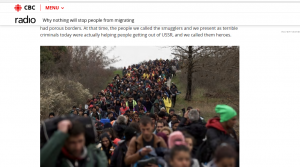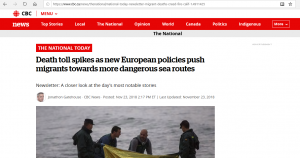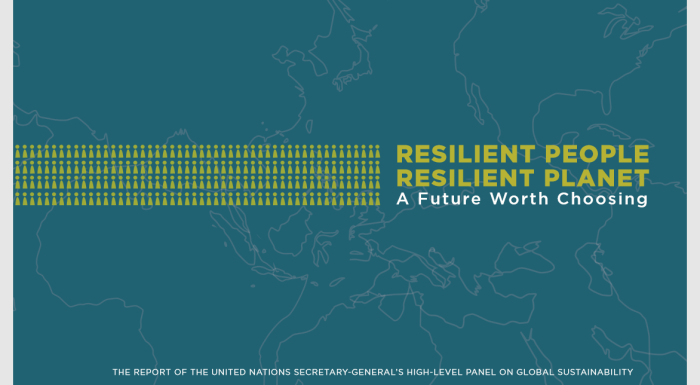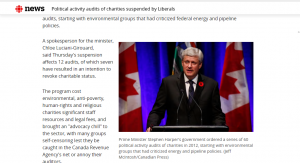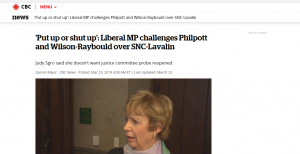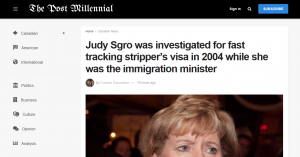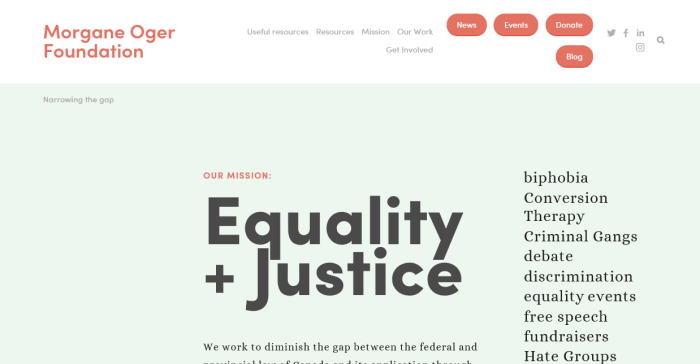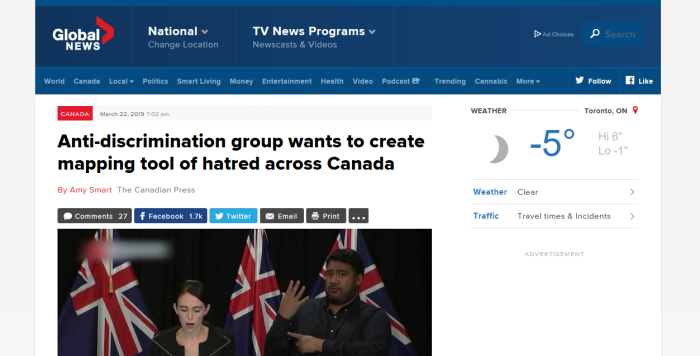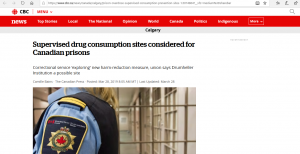
1. Important Links
CLICK HERE, for the CBC article.
CLICK HERE, for CBC Propaganda Master List.
CLICK HERE, for a related CBC “safe injection” article review.
CLICK HERE, for the Controlled Drugs and Substances Act of Canada.
CLICK HERE, for an article from the Dalhousie Journal of Legal Studies.
CLICK HERE, for the 1991 Regulated Health Professionals Act.
CLICK HERE, for an interesting malpractice case.
2. Drug Injections To Reduce Harm
Correctional service ‘exploring’ new harm-reduction measure, union says Drumheller Institution a possible site.
.
Canada’s prisoner service is considering opening overdose prevention sites as it expands a needle-exchange program that is now offered at a fifth institution for offenders who inject smuggled drugs.
.
In a statement, the Correctional Service of Canada says it “is in the early stages of exploring overdose prevention sites as another harm-reduction measure option for inmates.”
Let’s clear something up. Needle exchange is “already” operational, and at least 5 prisons have them. Apparently being complicit in drug use in prison is harm reduction.
And these “overdose prevention sites” are essentially free narcotics except with doctor supervision.
Proponents say Drumheller Institution in Alberta is being looked at as a potential site, which would allow offenders to use illicit drugs under medical supervision. The correctional service did not respond to inquiries to confirm that.
.
Jason Godin, president of the Union of Canadian Correctional Officers, said he has long lobbied for overdose prevention sites and that one has been proposed for Drumheller.
.
“At the very least, let’s start opening up (the sites) so we can get away from the needle-in-the-cell thing,” he said, adding supervised drug use would involve health-care professionals at a particular area in a prison instead of guards having to deal with inmates injecting smuggled drugs in their cells.
.
He said the needle-exchange program, which began last year, should be scrapped because nurses and doctors aren’t available at most institutions after 4 p.m. in case inmates overdose so sites dedicated to prevention make more sense, as long as they are adequately staffed.
The needle exchange program isn’t staffed properly, so let’s scrap it and start outright providing drugs directly to prisoners. This is harm reduction? And should prison staff be in the business of providing illicit drugs to inmates?
Wouldn’t this actually have the opposite effect of rehabilitation? Won’t people find it more advantageous to get arrested more in order to obtain free drugs?
I can sympathise with the guards wanting safer work atmosphere, but this might be a case of the cure being worse than the disease. And are taxpayers expected to foot the bill?
The correctional service said its needle-exchange program is aimed at preventing the spread of blood-borne diseases, such as HIV and hepatitis C, as well as skin infections from shared equipment as part of other harm-reduction measures including access to peer-support workers and the opioid substitution medications methadone and Suboxone.
.
The Nova Institution for Women in Truro, N.S., implemented a prisoner needle-exchange program earlier this month after it was introduced last June at Grand Valley Institution for Women in Kitchener, Ont., and the Atlantic Institution in Renous, N.B.
.
It was expanded to the Fraser Valley Institution for Women in Abbotsford, B.C., and the Edmonton Institution for Women this year.
.
Godin said at least two security issues have been reported since the needle-exchange program was rolled out, one involving a missing needle and another when an inmate left his injection kit out with the cell door open, potentially allowing unauthorized access to the equipment that could have posed a danger to guards or others.
Oh, the cognitive dissonance here. Prison staff say that this is aimed at preventing the spread of diseases, yet admits that human error can very easily cause more people to be put in danger.
And again, why are the prisons aiding and abetting in drug use? Isn’t that … “ILLEGAL”? And as for these supervised injection sites, does illicit drug use become legal as long as a doctor writes a prescription?
“Inmates who participate in the (program) are required to keep their needle kit safely stored in their cells,” it said, adding a lost kit or one with unaccounted-for items as well as unauthorized use of equipment could result in an inmate being disciplined.
.
The service said 13 inmates have been approved for the needle-exchange program at the five institutions but only five people are participating in the program because the remainder were either released or transferred to prisons that have not yet begun offering the service.
.
Peter Brown, a former offender who served three federal sentences at various institutions in Eastern Canada between 1992 and 1999 for crimes including robbery, said a needle-exchange program as well as overdose prevention sites are essential behind bars because drug use is common.
This is absurd. If inmates and cells are routinely searched for safety and contraband measures, “why” would requiring selected inmates to have it in their cells be a good idea? They are criminals. Moreover, couldn’t anyone who knows about their status rob them at almost any time.
Drug use is common in prison? That is true, but “why” should the public be allowing and financing it?
Brown said he used bleach provided by the correctional service to repeatedly rinse his needles and syringes to try and avoid transmission of HIV and hepatitis C. The service said bleach is still distributed to inmates for that reason.
.
Sandra Ka Hon Chu, director of research and advocacy for the Canadian HIV/AIDS Legal Network, said bleach is not as effective a method of avoiding transmission of blood-borne diseases as clean needles, which the group began lobbying for nearly two decades ago in keeping with similar programs in many European countries.
The staff is aware of the problem, and provides bleach, which can be extremely dangerous in the hands of drug addicted inmates. No concern for prison staff, just for the inmates shooting up.
Yes, drug use is often a problem among inmates. However, getting them treatment, and re-establishing something of a normal life would be much more beneficial to everyone in the long term.
As for the needle exchange, and the proposed “safe-injection” sites, shouldn’t the public have some say in the matter?
3. Canada’s Drug Act
Possession of substance
4 (1) Except as authorized under the regulations, no person shall possess a substance included in Schedule I, II or III.
Marginal note:
Obtaining substance
(2) No person shall seek or obtain
(a) a substance included in Schedule I, II, III or IV, or
(b) an authorization to obtain a substance included in Schedule I, II, III or IV
from a practitioner, unless the person discloses to the practitioner particulars relating to the acquisition by the person of every substance in those Schedules, and of every authorization to obtain such substances, from any other practitioner within the preceding thirty days.Definition of medical emergency
4.1 (1) For the purposes of this section, medical emergency means a physiological event induced by the introduction of a psychoactive substance into the body of a person that results in a life-threatening situation and in respect of which there are reasonable grounds to believe that the person requires emergency medical or law enforcement assistance.Marginal note:
Exemption — medical emergency
(2) No person who seeks emergency medical or law enforcement assistance because that person, or another person, is suffering from a medical emergency is to be charged or convicted of an offence under subsection 4(1) if the evidence in support of that offence was obtained or discovered as a result of that person having sought assistance or having remained at the scene.Marginal note:
Exemption — persons at the scene
(3) The exemption under subsection (2) also applies to any person, including the person suffering from the medical emergency, who is at the scene on the arrival of the emergency medical or law enforcement assistance.Marginal note:
Exemption — evidence
(4) No person who seeks emergency medical or law enforcement assistance because that person, or another person, is suffering from a medical emergency, or who is at the scene on the arrival of the assistance, is to be charged with an offence concerning a violation of any condition of a pre-trial release or probation order relating to an offence under subsection 4(1) if the evidence in support of that offence was obtained or discovered as a result of that person having sought assistance or having remained at the scene.Marginal note:
Deeming
(5) Any condition of a person’s pre-trial release, probation order, conditional sentence or parole relating to an offence under subsection 4(1) that may be violated as a result of the person seeking emergency medical or law enforcement assistance for their, or another person’s, medical emergency, or as a result of having been at the scene on the arrival of the assistance, is deemed not to be violated.
2017, c. 4, s. 2; 2018, c. 16, s. 195.1.
Previous VersionPossession, sale, etc., for use in production of or trafficking in substance
7.1 (1) No person shall possess, produce, sell, import or transport anything intending that it will be used
(a) to produce a controlled substance, unless the production of the controlled substance is lawfully authorized; or
(b) to traffic in a controlled substance.Drug treatment court program
10(4) A court sentencing a person who is convicted of an offence under this Part may delay sentencing to enable the offender
(a) to participate in a drug treatment court program approved by the Attorney General; or
(b) to attend a treatment program under subsection 720(2) of the Criminal Code.
- So what can we take away here?
- Drug use not illegal if you obtain authorization
- You won’t be charged with drug use for calling for medical aid
- You won’t be charged if you call in for “another’s” drug use
- You won’t be breaching:
- Pre-trial conditions
- Probation
- Parole
- A conditional sentence
- From calling in for emergency medical attention
- Trafficking okay if legally authorised
- Provisions exist to allow criminals to get treatment
Although the review might seem like a cold indifference to people with drug problems this is not the case. I want them to be treated and move on with their lives.
However, supplying drugs and drug paraphernalia is (in my view) a very bad way to handle the problem.




